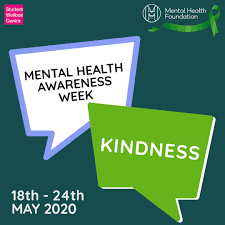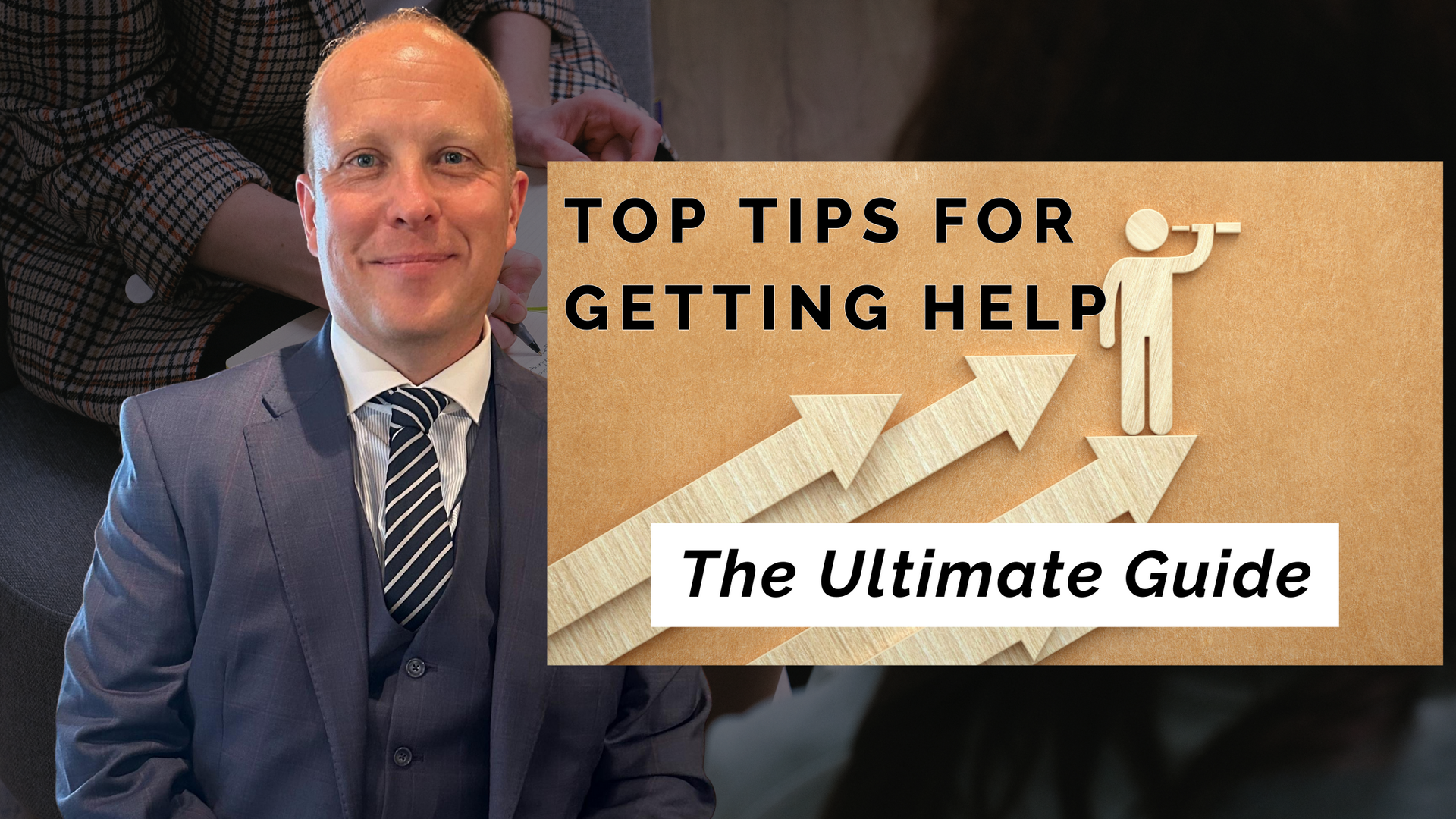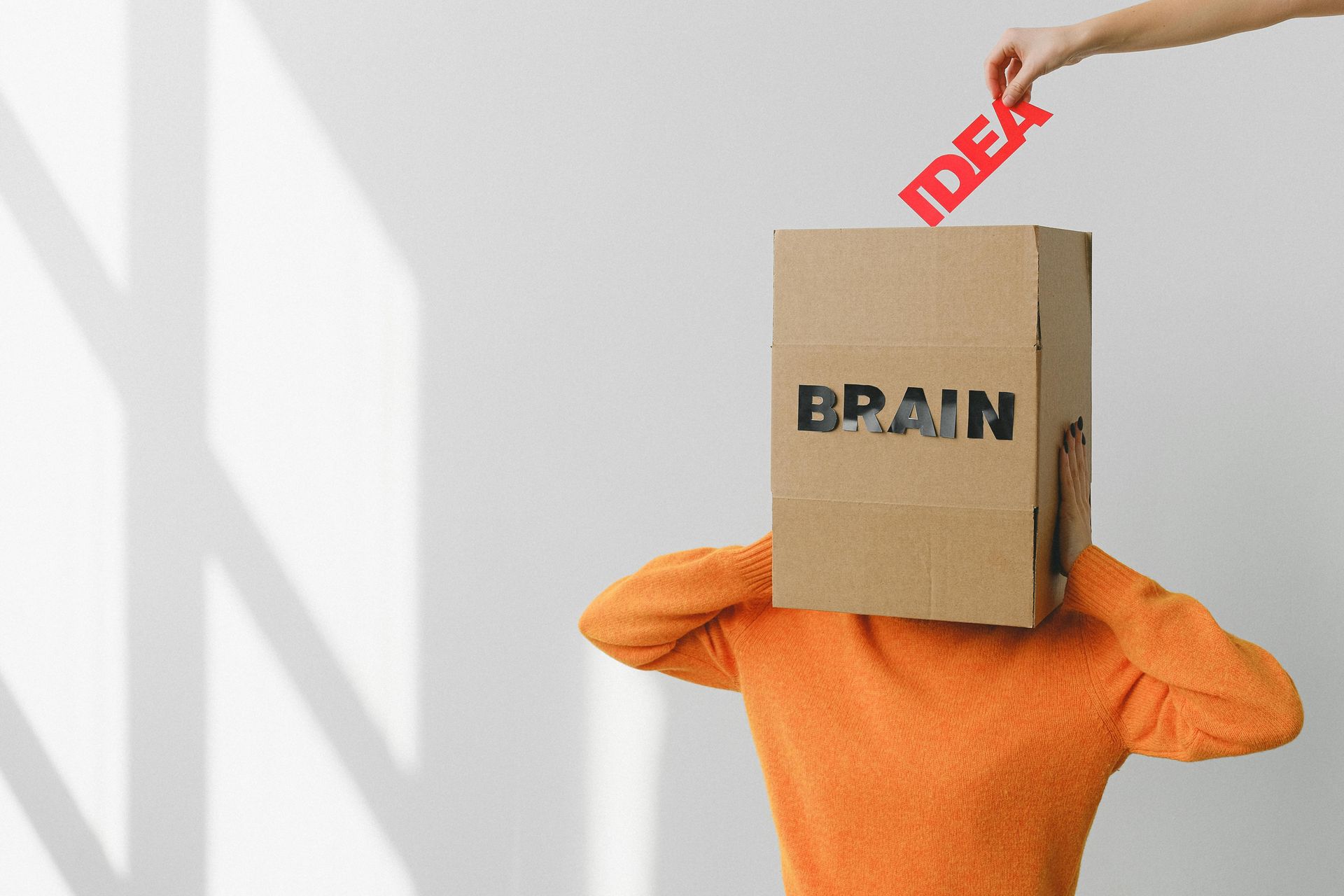Kindness - Mental Health Awareness Week 2020
noreply • 18 May 2020
What a great topic for Mental Health Awareness Week, but I want to share with you a different angle.
Firstly, though I want to share the fundamentals of this campaign from the Mental Health Foundation before I put my spin on what I believe is the missing link.
Why kindness?
We have chosen kindness because of its singular ability to unlock our shared humanity. Kindness strengthens relationships, develops community and deepens solidarity. It is a cornerstone of our individual and collective mental health. Wisdom from every culture across history recognises that kindness is something that all human beings need to experience and practise to be fully alive.
Kindness and Mental Health
Kindness is defined by doing something towards yourself and others, motivated by genuine desire to make a positive difference.
We know from the research that kindness and our mental health are deeply connected. The research shows that kindness is an antidote to isolation and creates a sense of belonging. It helps reduce stress, brings a fresh perspective and deepens friendships. Kindness to ourselves can prevent shame from corroding our sense of identity and help boost our self-esteem.
Kindness can even improve feelings of confidence and optimism.
Kindness is an act of courage
But kindness is an intrinsically risky endeavour. It can risk us looking foolish or being taken advantage of, which is why we sometimes retreat. To receive or to give kindness is an act of courage. We want to use Mental Health Awareness Week to support each other to take that brave step and harness the benefits for both giver and receiver.
A kinder society?
We have a once in a generation opportunity not only during but also following this pandemic for a reset and re-think about what kind of society we want to emerge from this crisis.
Our own reports and others such as Sir Michael Marmot’s 10 years On report reveal how inequality is rising in our society and its harmful effects on our health. Life expectancy is falling for the poorest for the first time in 100 years. As child poverty rises, children and young people in the poorest parts of our country are two to three times
more likely to experience poor mental health than those in the richest. After the 2008 credit crunch it was the most vulnerable in our communities who experienced the severest consequences of austerity, with devastating effects on their mental and physical health. This not the hallmark of a kind society. We must not make the same mistakes after this pandemic.
Applied kindness could have a transformative impact on our schools, places of work, communities and families. As the former Governor of the Bank of England, Mark Carney, has said, now is a time to put values above valuations. We must seize this time to shape a society that tips the balance in favour of good mental health, for all of us, but especially for those who are most vulnerable.
Kindness Matters – what you can do
During Mental Health Awareness Week in May, we will release new data to reveal how many of us experience kindness in the UK and a summary of the latest evidence about its important mental health benefits. There will be tips, fundraising ideas and stories that we hope will inspire you.
We know that one act of kindness can lead to many more. This is the type of community action that we need to inspire others as we discover our connection to each other and extend kindness to ourselves.
#KindnessMatters and #MentalHealthAwarenessWeek
Source – Date 18/05/2020
My Thoughts on Kindness
“Kindness is having the vulnerability of service, with the courage to say I have got you, but putting yourself first before serving others.”
Kindness has a price, everything we do has a risk attached.
For many those who are kind, the plain simple fact is that they honour service to others before themselves, they are intrinsically kind and do so through values passed down from generation to generation, influenced by society, religion and other doctrine.
Yet fearing death and not serving the right god, company ethos or family expectation keeps many of us in bondage, wanting to feel belonging, whatever the cost.
Give service to a higher power to look outside and serve something greater than ourselves.
Kindness is to give to the person with no money, even if you then become poor, to help the needy without the correct equipment because it is for the greater good.
The issue here is you can’t drink from an empty cup.
I speak with so many amazing people who like myself have put others before themselves, due to the simple fact that to do anything other than that is to be selfish.
Let us take the present state of our public sector, as the politicians and media keep us clapping for keyworkers, trying to raise our spirits, as people raise money for an NHS that is already paid for through taxation.
In our time of need the politicians pay themselves more.
The truth is this show of appreciation offers no solace to the care worker who got up at 5am and is not due home until 9pm, or the emergency worker who is being forced to work 12 hour shifts to keep lid on the disaster that has being playing out for the last decade, as the rich are getting richer and the poor are getting poorer.
Yet we do it out of kindness, service a cause bigger than ourselves but one that does not serve us. We are kind and give to others and sacrifice ourselves.
How many of you know the boss that tells you how amazing you are, yet fails to give you the pay rise or promotion, buys the team cakes, yet fails to take your personal development review seriously.
Yet as the kind caring person you continue giving, being dutiful to a person, organisation, maybe your family because you are the kind one, the empath, you are held in such high esteem, like the gladiators of Rome you are honoured, clapped, until you are finally slain and you are thrown onto the pile, for someone will take your place have no doubt.
Kindness starts from within, my own journey which I talk about in my book Drowning in Anxiety, documents my own realisation, that I was being played most of my life, but I never knew why.
The familiar.
The subconscious mind loves the familiar, therefore good or bad it cares not.
The mind cares not if you are kind or evil, its job is to do one thing. Keep you alive. Good or bad is just a perspective based on your environment, both physical and mental.
Once something is familiar, it is part of your survival strategy, it is your guide for living.
A guide which experience has kept you breathing and until a new set of tools are found it will either keep you in the suffering state or the beautiful state.
How many of you reading this wake up and say:
“I feel awful”
Yet you continue on, it is simple, your subconscious is running your life and you are trying to figure it out with your conscious logical brain.
This is no different to the key worker who goes to work every day, tired, repressed but does so because they have a sense of service to others, to be kind to others and if they question it, they are thrown a crumb by their masters and take it as their need to survive is greater than their need to thrive.
Why are you not thriving?
Often many will choose to climb the ladder, willing to sacrifice their own self worth in the opposite direction, to sacrifice kindness to join the oppressors, the controllers and they will do anything to prove their worth – these people we may call selfish, they are not, they are surviving using the tools that they have been given and they have simply made a choice.
To me there only ever seemed to be 2 choices, be kind, loyal to your purpose and suffer or do what it takes and be loyal to the master above you, rising up whatever the cost.
There is another way, a kinder way
I believe everyone should live a fulfilled and happy life, when you free yourself of the stories you tell yourself everyday, you can start to open your eyes to the single truth that being selfish is not the right of the few, it is the right of everyone.
When you fill your own cup, with your truth, your purpose, your why and can be vulnerable in that process, you develop a courage that allows you to stand tall.
To say this is me, when you go inside and find the truth about the stories you tell yourself you find those stories are false.
Stories which are but a moment, a season in your life.
Moments are full stops in your journey and the greatest moments are contained in kindness, in a shared experience of love, peace and freedom.
Love peace and freedom are created within the stories you tell yourself everyday.
So before you give a kind word to another, give it to yourself, before you give a moment to another, give it to yourself, before you sacrifice your money, time, energy, give it to yourself and then see it amplify within you.
As that feeling amplifies, let the world see it and you will attract all the abundance in the world and when your cup is full, let it overflow so others can then drink from the kindness that flows from you.
You could invest your money in things or invest it in your dream and vision, your secret desire and see it amplify so you do not help one person but thousands.
Only then will you truly be free.
So, start with being kind to yourself, you are worth that and nothing else and remember:
“A single act of kindness throws out roots in all directions, and the roots spring up and make new trees.” – Amelia Earhart
So plant that seed in you today, get rid of the weeds and one day, the kindness you show yourself will allow you to produce the kindness to feed those who travel behind you on the journey to abundance.
Marcus Matthews
Kindness has a price, everything we do has a risk attached.
For many those who are kind, the plain simple fact is that they honour service to others before themselves, they are intrinsically kind and do so through values passed down from generation to generation, influenced by society, religion and other doctrine.
Those who give the most are often the ones who will sacrifice themselves so that others may benefit, the Jesus story is one of ultimate sacrifice, that one should be willing to die for their purpose.
Yet fearing death and not serving the right god, company ethos or family expectation keeps many of us in bondage, wanting to feel belonging, whatever the cost.
So we are taught to give to others and sacrifice ourselves because if God sacrificed his son, then that must be the only way to serve.
Give service to a higher power to look outside and serve something greater than ourselves.
Kindness is to give to the person with no money, even if you then become poor, to help the needy without the correct equipment because it is for the greater good.
The issue here is you can’t drink from an empty cup.
I speak with so many amazing people who like myself have put others before themselves, due to the simple fact that to do anything other than that is to be selfish.
Let us take the present state of our public sector, as the politicians and media keep us clapping for keyworkers, trying to raise our spirits, as people raise money for an NHS that is already paid for through taxation.
In our time of need the politicians pay themselves more.
In our time of need the politicians pay themselves more.
The truth is this show of appreciation offers no solace to the care worker who got up at 5am and is not due home until 9pm, or the emergency worker who is being forced to work 12 hour shifts to keep lid on the disaster that has being playing out for the last decade, as the rich are getting richer and the poor are getting poorer.
Yet we do it out of kindness, service a cause bigger than ourselves but one that does not serve us. We are kind and give to others and sacrifice ourselves.
How many of you know the boss that tells you how amazing you are, yet fails to give you the pay rise or promotion, buys the team cakes, yet fails to take your personal development review seriously.
Yet as the kind caring person you continue giving, being dutiful to a person, organisation, maybe your family because you are the kind one, the empath, you are held in such high esteem, like the gladiators of Rome you are honoured, clapped, until you are finally slain and you are thrown onto the pile, for someone will take your place have no doubt.
Kindness starts from within, my own journey which I talk about in my book Drowning in Anxiety, documents my own realisation, that I was being played most of my life, but I never knew why.
The familiar.
The subconscious mind loves the familiar, therefore good or bad it cares not.
The mind cares not if you are kind or evil, its job is to do one thing. Keep you alive. Good or bad is just a perspective based on your environment, both physical and mental.
Once something is familiar, it is part of your survival strategy, it is your guide for living.
A guide which experience has kept you breathing and until a new set of tools are found it will either keep you in the suffering state or the beautiful state.
How many of you reading this wake up and say:
“I feel awful”
“I look so fat”
“I can’t do this anymore”
“I hate my job”
“I hate my life”
Yet you continue on, it is simple, your subconscious is running your life and you are trying to figure it out with your conscious logical brain.
This is no different to the key worker who goes to work every day, tired, repressed but does so because they have a sense of service to others, to be kind to others and if they question it, they are thrown a crumb by their masters and take it as their need to survive is greater than their need to thrive.
Why are you not thriving?
Often many will choose to climb the ladder, willing to sacrifice their own self worth in the opposite direction, to sacrifice kindness to join the oppressors, the controllers and they will do anything to prove their worth – these people we may call selfish, they are not, they are surviving using the tools that they have been given and they have simply made a choice.
To me there only ever seemed to be 2 choices, be kind, loyal to your purpose and suffer or do what it takes and be loyal to the master above you, rising up whatever the cost.
There is another way, a kinder way
I believe everyone should live a fulfilled and happy life, when you free yourself of the stories you tell yourself everyday, you can start to open your eyes to the single truth that being selfish is not the right of the few, it is the right of everyone.
When you fill your own cup, with your truth, your purpose, your why and can be vulnerable in that process, you develop a courage that allows you to stand tall.
To say this is me, when you go inside and find the truth about the stories you tell yourself you find those stories are false.
Stories which are but a moment, a season in your life.
Moments are full stops in your journey and the greatest moments are contained in kindness, in a shared experience of love, peace and freedom.
Love peace and freedom are created within the stories you tell yourself everyday.
Love peace and freedom are created within the stories you tell yourself everyday.
So before you give a kind word to another, give it to yourself, before you give a moment to another, give it to yourself, before you sacrifice your money, time, energy, give it to yourself and then see it amplify within you.
As that feeling amplifies, let the world see it and you will attract all the abundance in the world and when your cup is full, let it overflow so others can then drink from the kindness that flows from you.
You could invest your money in things or invest it in your dream and vision, your secret desire and see it amplify so you do not help one person but thousands.
Only then will you truly be free.
So, start with being kind to yourself, you are worth that and nothing else and remember:
“A single act of kindness throws out roots in all directions, and the roots spring up and make new trees.” – Amelia Earhart
So plant that seed in you today, get rid of the weeds and one day, the kindness you show yourself will allow you to produce the kindness to feed those who travel behind you on the journey to abundance.
Marcus Matthews
c.RTT c.HYP
Rapid Transformational Therapist and Coach
www.makeyourlifecount.co.uk











